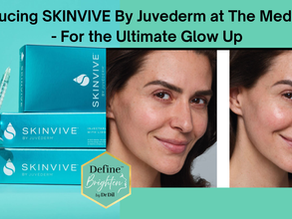top of page
The MediShed By Dr Dill | Skincare Clinic In Balham London
Search


The 'Define & Brighten™ Ritual' Membership at The Medi-Shed
Our skin is unique, and it is constantly changing. Breakouts, pigmentation, dullness, or simply wanting to maintain the healthy glow you already have, whatever your starting point, the Define & Brighten™ Ritual is designed to support your skin’s natural evolution, bespoke to you, throughout the year. For the very first time, Medi-Shed has launched a membership, and it is now live in the Medi-Shed app. Inspired by my Define & Brighten™ philosophy, this membership takes a medic
Dil Kassam
Jan 183 min read


JULÄINE®: A Regenerative Injectable Designed to Improve Skin Quality From Within
As we age, our skin naturally produces less collagen. From our mid-twenties onwards, this decline is gradual but continuous, contributing to changes in firmness, elasticity and overall skin quality over time In aesthetic medicine, there has been a growing shift away from simply replacing what is lost, and towards treatments that support the skin’s own regenerative processes. JULÄINE® sits firmly within this approach. JULÄINE® is a next-generation biostimulator designed to imp
Dil Kassam
Dec 26, 20254 min read


Move Over Fillers:) SKINVIVE® by Juvéderm Is the Skin Booster Everyone’s Talking About
Hi everyone! If you know me, you’ll know I’m always on the lookout for treatments that genuinely improve skin health and not just quick fixes. I’m really excited to share that we now offer SKINVIVE® by Juvéderm at The Medi-Shed in Balham, a brand-new skin booster that’s taking the aesthetics world by storm. Everyone's talking about SkinVive, but is it really the next big skin booster? Unlike traditional fillers that add volume, SKINVIVE® focuses on skin quality, helping your
Dil Kassam
Nov 30, 20254 min read
bottom of page
